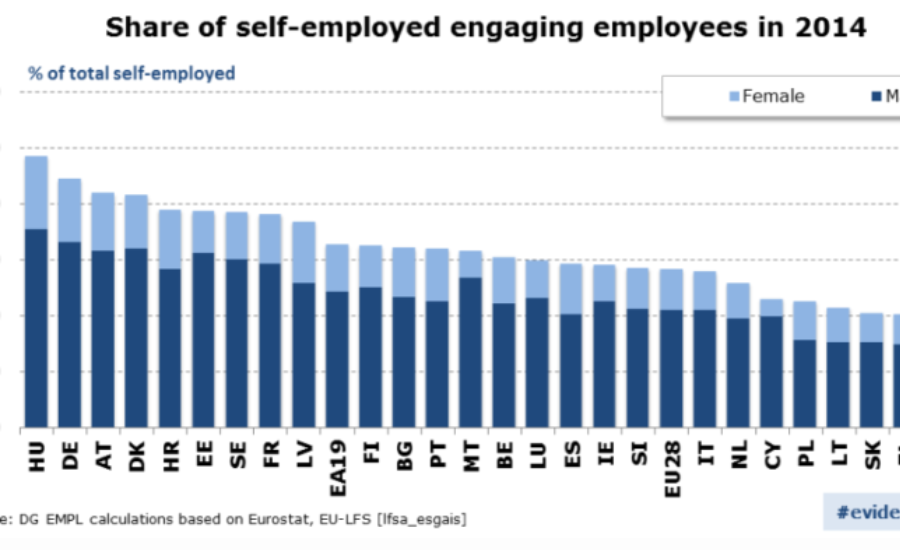The 1980s in the Sc60 vs Self Employed UK 80’s marked a period of significant economic transformation. Amidst changing regulations and an evolving job market, many individuals explored alternative employment options to adapt to the new landscape. Two prominent routes that emerged during this time were the SC60 scheme and self-employment. This article delves into the distinctions between these two pathways, examining their benefits, challenges, and the overall impact on the UK economy.
SC60 Scheme
What is SC60?
The SC60 scheme was a tax initiative introduced by the UK government to streamline tax deductions for contractors and freelancers, particularly in the construction industry. This program aimed to provide a more transparent and equitable process for tax deductions, ensuring that individuals in these sectors could meet their tax obligations more efficiently. The SC60 scheme was developed to simplify the complexities often associated with tax compliance, offering a structured framework that helped both contractors and employers adhere to the necessary tax regulations. By implementing this scheme, the government sought to reduce tax evasion and promote a fairer taxation system, ultimately supporting the financial stability of self-employed individuals and the broader economy.
Eligibility Criteria
To be eligible for the Sc60 vs Self Employed UK 80’s, individuals typically needed to be registered as subcontractors in specific industries, usually within the construction sector. Possession of an SC60 certificate was essential, as it permitted contractors to withhold tax at the source from payments made to these subcontractors.
Advantages of the SC60 Scheme
The SC60 scheme provided numerous advantages for both contractors and subcontractors. One of the primary benefits was the simplification of the tax process, significantly reducing the administrative workload for freelancers and contractors alike. By facilitating regular tax deductions, the scheme helped subcontractors maintain financial stability and ensured that they consistently met their tax obligations. This approach eliminated the need for subcontractors to save up for a large annual tax payment, thereby alleviating financial strain and promoting better financial planning.
Self-Employment in the 1980s
Increase in Self-Employment
The 1980s experienced a notable surge in self-employment, driven by various economic factors such as a trend towards deregulation and the shift towards a more entrepreneurial economy. During this decade, many individuals opted for self-employment to achieve greater control over their professional paths and earnings, reflecting a broader cultural movement towards independence and innovation in the workplace.
Key Self-Employment Industries
Throughout the 1980s, several industries emerged as popular sectors for self-employment. The construction industry, retail sector, and the burgeoning technology field offered numerous opportunities for individuals to start their own businesses and work autonomously. These sectors were particularly attractive because they provided ample avenues for entrepreneurship, enabling people to leverage their skills and creativity to establish successful enterprises.
Challenges Faced by Self-Employed Workers in the 1980s
Self-employed individuals in the 1980s encountered a variety of significant challenges. Among these were the lack of job security and the unpredictability of income, which often made financial planning difficult. Additionally, they were responsible for maintaining thorough records and managing their own tax filings, ensuring compliance with all relevant regulations. This comprehensive administrative burden required a high level of organization and knowledge, adding another layer of complexity to their work life.
Comparison of Sc60 vs Self Employed UK 80’sand Self-Employment
Financial Implications
A key distinction between the Sc60 vs Self Employed UK 80’s and self-employment lies in the management of income and taxes. Under the SC60 scheme, a structured tax deduction system was in place, providing a more predictable financial environment. Conversely, self-employed individuals had to manage their own tax payments, which could be erratic and challenging to predict, often leading to financial uncertainty.
Administrative Burden
The SC60 scheme significantly reduced administrative responsibilities for contractors by having taxes deducted at the source. This streamlined process contrasted sharply with the experience of self-employed individuals, who had to handle all their financial records and tax submissions independently. This self-management of finances was not only time-consuming but also added a layer of complexity to their business operations.
Job Security and Stability
The SC60 scheme offered greater job security by ensuring consistent work and regular tax deductions, which contributed to financial stability. In contrast, self-employed individuals frequently faced variable workloads and income levels, which made achieving financial stability more challenging. The lack of a steady income stream often posed a significant concern for those pursuing self-employment.
Case Studies
SC60 Success Stories
Several individuals experienced significant benefits from the SC60 scheme. For example, John, a subcontractor in the construction industry, found the SC60 scheme invaluable for managing his tax obligations and ensuring a steady income. This allowed him to focus more on his work and less on administrative tasks, ultimately enhancing his productivity and job satisfaction.
Self-Employed Entrepreneurs
In contrast, Jane, who started her own retail business in the 1980s, faced numerous challenges but ultimately achieved success. Her journey in self-employment was marked by the need to innovate and grow her business despite the hurdles of managing taxes and financial records. Jane’s experience highlights the potential for significant growth and creativity in self-employment, even amidst the complexities of financial and administrative responsibilities.
Government Policies and Reforms
Changes in Taxation Policies
During the 1980s, the UK government implemented a series of tax reforms that affected both Sc60 vs Self Employed UK 80’s scheme participants and self-employed individuals. These reforms were designed to simplify tax procedures and offer better support to independent workers, aiming to create a more efficient and supportive environment for all involved.
Support Programs for the Self-Employed
In addition to tax reforms, the government introduced various support programs to assist self-employed individuals. These programs provided essential resources and guidance to help self-employed workers manage the complexities of running their own businesses. Through these initiatives, the government aimed to foster a more conducive environment for entrepreneurial growth and self-employment success.
Long-Term Impact and Legacy
Economic Impact
The SC60 scheme and the rise of self-employment in the 1980s had significant and enduring effects on the UK economy. They fostered a more flexible and entrepreneurial workforce, which has continued to adapt and evolve in the following decades. This shift contributed to the growth of a dynamic and resilient labor market, capable of responding to changing economic conditions.
Lessons Learned
The experiences of the 1980s provided valuable lessons about the importance of supporting both structured tax schemes like SC60 and offering resources for self-employed individuals. These insights have shaped contemporary policies and practices within the UK job market. By recognizing the need for both reliable tax frameworks and comprehensive support systems for self-employed workers, modern policies aim to create a balanced and thriving economic environment.
Summary
The 1980s in the United Kingdom were a time of substantial economic change, prompting many individuals to explore alternative employment routes such as the SC60 scheme and self-employment. The Sc60 vs Self Employed UK 80’s, offered a structured framework to ensure efficient tax compliance. It provided advantages like simplified tax processes and financial stability. Conversely, the rise in self-employment during this period was driven by deregulation and a shift towards an entrepreneurial economy, allowing individuals greater control over their careers. However, self-employed workers faced challenges including job insecurity, income unpredictability, and the complexities of managing their own tax obligations.
The comparison between SC60 and self-employment highlights distinct differences in financial management, administrative burden, and job stability. While SC60 reduced administrative tasks and provided a predictable financial environment, self-employed individuals had to independently manage their finances, leading to greater complexity and financial uncertainty. Case studies exemplify the benefits of SC60 for contractors like John, and the entrepreneurial successes and challenges of self-employed individuals like Jane.
Government policies in the 1980s, including tax reforms and support programs, played a crucial role in shaping these employment pathways. The long-term impact of these changes has been a more flexible and entrepreneurial workforce in the UK, with valuable lessons learned that continue to influence current policies, aiming to create a balanced and thriving economic environment.
FAQs
What was the SC60 scheme?
The SC60 scheme was a tax initiative introduced by the UK government to streamline tax deductions for contractors and freelancers, especially in the construction industry. It aimed to simplify tax compliance and reduce tax evasion.
Who was eligible for the SC60 scheme?
To be eligible for the SC60 scheme, individuals typically needed to be registered as subcontractors in specific industries, such as construction. They also needed to possess an SC60 certificate, which allowed contractors to withhold tax at the source.
What were the advantages of the Sc60 vs Self Employed UK 80’s?
The SC60 scheme simplified the tax process, reduced administrative workload for freelancers and contractors, facilitated regular tax deductions, and helped subcontractors maintain financial stability.
Why did self-employment rise in the 1980s?
Self-employment rose in the 1980s due to economic factors like deregulation and a shift towards a more entrepreneurial economy. Many individuals sought greater control over their careers and income.
What challenges did self-employed individuals face in the 1980s?
Self-employed individuals faced challenges such as lack of job security, unpredictable income, and the responsibility of managing their own tax filings and financial records.
How did the SC60 scheme and self-employment differ in terms of financial implications?
Under the SC60 scheme, there was a structured tax deduction system, providing a predictable financial environment. Self-employed individuals had to manage their own tax payments, which could be erratic and challenging to predict.
What was the administrative burden difference between SC60 and self-employment?
The SC60 scheme reduced administrative responsibilities by having taxes deducted at the source, whereas self-employed individuals had to handle all their financial records and tax submissions independently.
Don’t miss out on updates and alerts – stay connected! Discover Thrill









Leave a Reply
View Comments